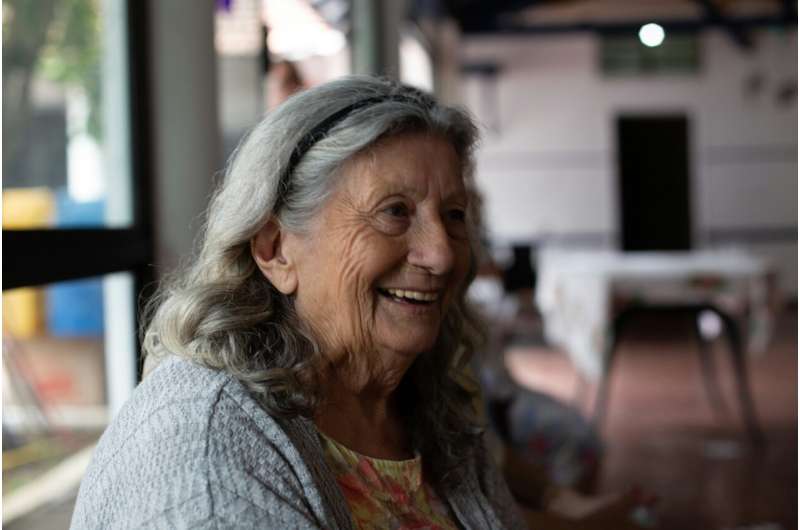This article has been reviewed according to Science X's editorial process and policies. Editors have highlighted the following attributes while ensuring the content's credibility:
fact-checked
trusted source
proofread
Benefits of low-intensity dementia risk reduction program for older Australians reported

Western Sydney University's "Brain Bootcamp" is Australia's first self-guided intervention demonstrating the potential of short lifestyle modifications, even later in life, in dementia prevention.
The findings revealed 7 out of 10 participants who completed the program had a significant decrease in their dementia risk.
The three-month study followed more than 350 seniors, with an average age of 73.3 years, who received a "Brain Bootcamp" box delivered to their homes which included educational materials, personalized risk information, physical cues for healthier choices, and goal-setting and planning prompts. The findings are published in The Journal of Prevention of Alzheimer's Disease.
Each of the seniors set two to four goals based on modifiable risk factors, with 84% choosing to work on their physical activity.
Lead researcher Associate Professor Joyce Siette, from the University's MARCS Institute for Brain, Behavior and Development, said that unlike previous studies, "Brain Bootcamp" not only reinforces the benefits of lifestyle changes but also provides practical tools and strategies to help participants incorporate them into their daily lives.
"Dementia risk is a growing concern with the aging population and while we already know some of the underlying behaviors that increase dementia risk, this research is groundbreaking in its approach to combining these elements into a short, low-intensity intervention that is both accessible and feasible for older adults," said Dr. Siette.
"Understanding effective strategies to mitigate this risk, such as increasing daily step count, can empower individuals and communities to adopt healthier lifestyles, potentially reducing dementia prevalence and improving quality-of-life for older adults.
"Early intervention and awareness can lead to significant long-term benefits, not only for those directly affected but also for their families and caregivers."
The study also demonstrated a 10% increase in participants acknowledging that it is possible to reduce the risk of dementia, increasing from 71.6% pre-program to 81.4% post-program.
This also led to improved motivation among participants to change their lifestyle behaviors upon completion of the program, highlighting the program's success in encouraging dementia literacy around healthier choices related to diet, exercise, cognitive activity, and social interaction.
These findings are instrumental in shaping future dementia prevention programs and public health strategies with the research team now actively completing replicas of this program for regional and rural older adults, and culturally diverse seniors and communities.
"This study represents a significant step forward in our fight against dementia, offering a scalable and accessible approach to risk reduction," said Associate Professor Siette.
"By highlighting programs like ours, we can inspire proactive measures to maintain brain health, reduce health care costs associated with dementia care, and enable a more informed, health-conscious society and a healthier, more resilient aging population."
More information: J. Siette et al, A Pilot Study of BRAIN BOOTCAMP, a Low-Intensity Intervention on Diet, Exercise, Cognitive Activity, and Social Interaction to Improve Older Adults' Dementia Risk Scores, The Journal of Prevention of Alzheimer's Disease (2024). DOI: 10.14283/jpad.2024.104



















